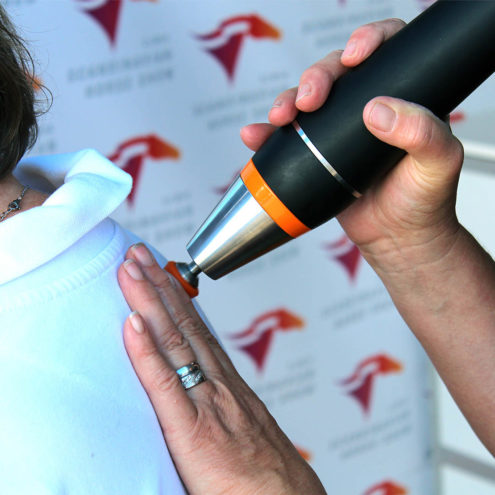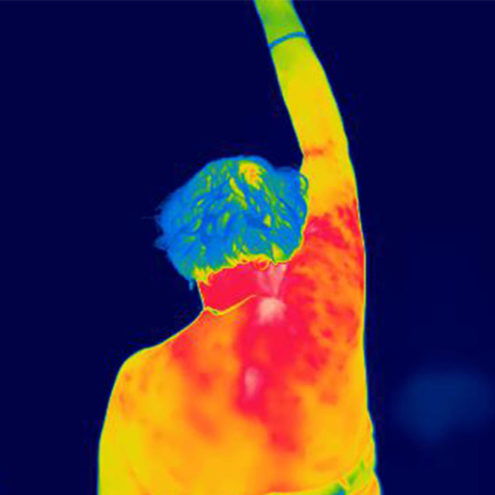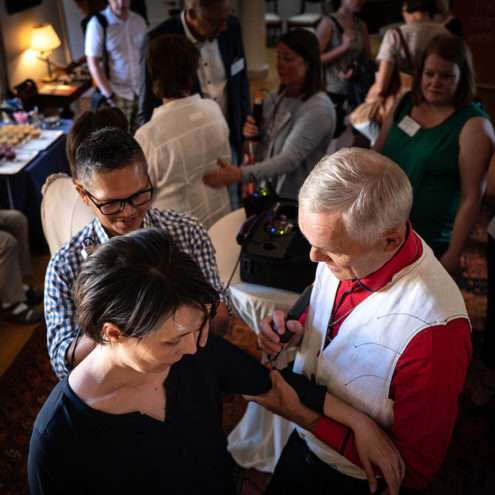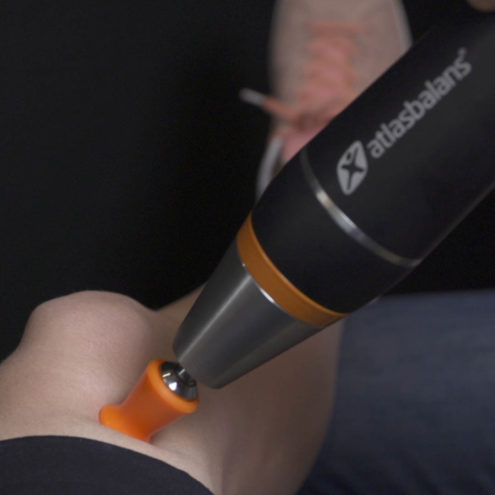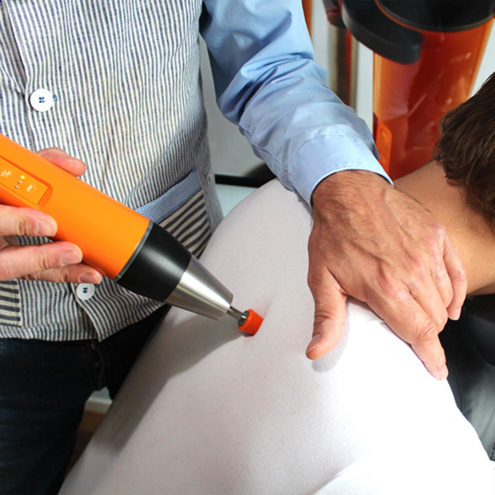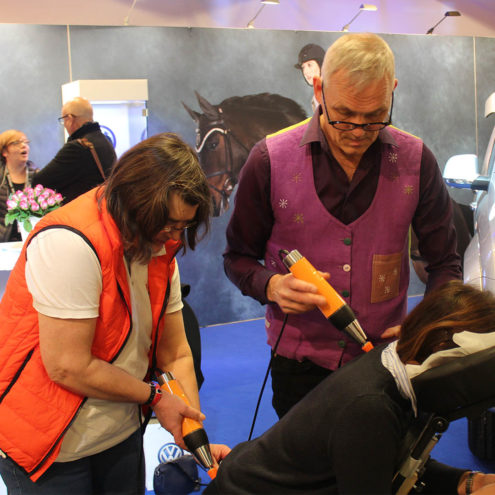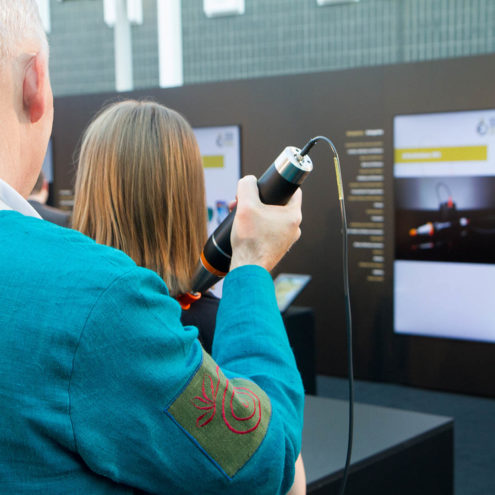Tinnitus Sounds: Causes and Management

Tinnitus is the perception of sound, where there is no sound and can be caused by dysfunction anywhere in the auditory system. Tinnitus is a common problem that affects millions of people worldwide. This condition can be very distressing and significantly affect quality of life. In this article, we will explore tinnitus sounds, its different types, causes as well as effective management strategies.
What are tinnitus sounds?
Description of tinnitus and its characteristics, including the experience of sound in the ears without an external sound source
Tinnitus is a medical term used to describe the experience of sounds in the ears or head without any external sound source. These sounds can be constant or intermittent and vary in intensity and character. Common descriptions of tinnitus sounds include tones of a ringing, hissing, roaring or whistling nature. Tinnitus can affect one or both ears. The sounds can be perceived in different ways by affected individuals.
Different types of tinnitus sounds, such as ringing, hissing, roaring, or beeping sounds
Tinnitus can manifest itself in different forms and types of sounds:
Ringing sound: A common tinnitus sound often described as a high-pitched ringing or bell-like sound.
Whirring sound : A sound similar to the wind: A sound similar to the wind rustling through the trees or a constant background noise.
Roaring sound: A low frequency sound that may resemble water running or an electrical hum.
Beeping sound: A high frequency beeping sound that can be intermittent or constant.
The intensity and impact of sounds can vary depending on factors such as the environment and general health.
Causes of tinnitus sounds
Hearing damage or loss due to age, noise exposure or medical conditions
Hearing damage and hearing loss are common causes of tinnitus. These damages can occur due to
Age: Age-related hearing lossAge-related hearing loss, also known as presbycusis, is a common cause of tinnitus in older adults.
Exposure to noise: Prolonged exposure to loud noises, such as at concerts, construction sites or through the use of headphones at high volume, can damage the hair cells in the inner ear and lead to tinnitus.
Medical conditions: Medical conditions such as Meniere’s disease, high blood pressure and diabetes can affect hearing and cause tinnitus.
Ear infections, blockages or damage to the ear or hearing organs
Ear infections and blockages in the ear can also cause tinnitus:
Ear infections: Infections of the middle or inner ear can cause inflammation and fluid accumulation, which can lead to tinnitus.
Earwax: Excessive accumulation of earwax can block the ear canal and cause tinnitus.
Damage to the ear: Damage to the ear, including perforated eardrum or trauma to the head, can lead to tinnitus.
Stress, anxiety or depression can worsen the experience of tinnitus sounds
Psychological factors such as stress, anxiety and depression can not only cause tinnitus but also worsen the experience of tinnitus sounds. These conditions can increase awareness of tinnitus and make the sound more disturbing:
Stress : Stress can affect the body’s physiological processes: Stress can affect the body’s physiological processes and make tinnitus worse.
Anxiety: Anxiety can increase the perception of tinnitus and make it more difficult to manage the sound.
Depression : Depression can lead to increased sensitivity to tinnitusDepression can lead to an increased sensitivity to tinnitus and make it harder to cope with daily activities.
Tinnitus sound management
Sound therapy or tinnitus masking sounds to mask tinnitus and reduce its impact
Sound therapy is an effective method of managing tinnitus. This therapy involves the use of external sounds to mask tinnitus and reduce its impact:
White noise machines: These devices produce a continuous noise that can mask tinnitus and make it less noticeable.
Nature sounds: Sounds of rain, sea waves or forest sounds can be used to create a calming background and reduce awareness of tinnitus.
Music : Soft music or specially adapted sound files: Soft music or specially adapted sound files can be used to distract from tinnitus and improve sleep.
Relaxation and stress management methods to reduce the symptoms of tinnitus
Relaxation and stress management techniques are important to reduce the impact of tinnitus:
Meditation : Meditation can help reduce stress and anxiety.: Regular meditation can help reduce stress and anxiety, which can reduce the intensity of tinnitus.
Deep breathing: Deep breathing techniques can help calm the mind and reduce stress levels.
Yoga : Yoga combines physical exercise with meditation: Yoga combines physical exercise with meditation and can be an effective method of managing stress and improving general health.
Cognitive behavioral therapy (CBT): CBT is a form of therapy that helps individuals change their thought patterns and behaviors, which can reduce the negative impact of tinnitus.
Use of hearing aids or other assistive listening devices to improve hearing and reduce the perception of tinnitus sounds
For people with hearing loss, hearing aids can be very helpful. These devices can improve hearing and reduce the experience of tinnitus sounds:
Hearing aids: By amplifying external sounds, hearing aids can reduce tinnitus dominance and make it easier to hear ambient sounds.
Tinnitus maskers: These devices are similar to hearing aids but are specially designed to generate sounds that mask tinnitus.
Combination devices: Some hearing aids have built-in tinnitus maskers that combine both functions.
In summary, tinnitus is a distressing condition that can significantly affect quality of life. By understanding the causes, symptoms and treatment methods, you can effectively manage and alleviate your symptoms.
 Search
Search

